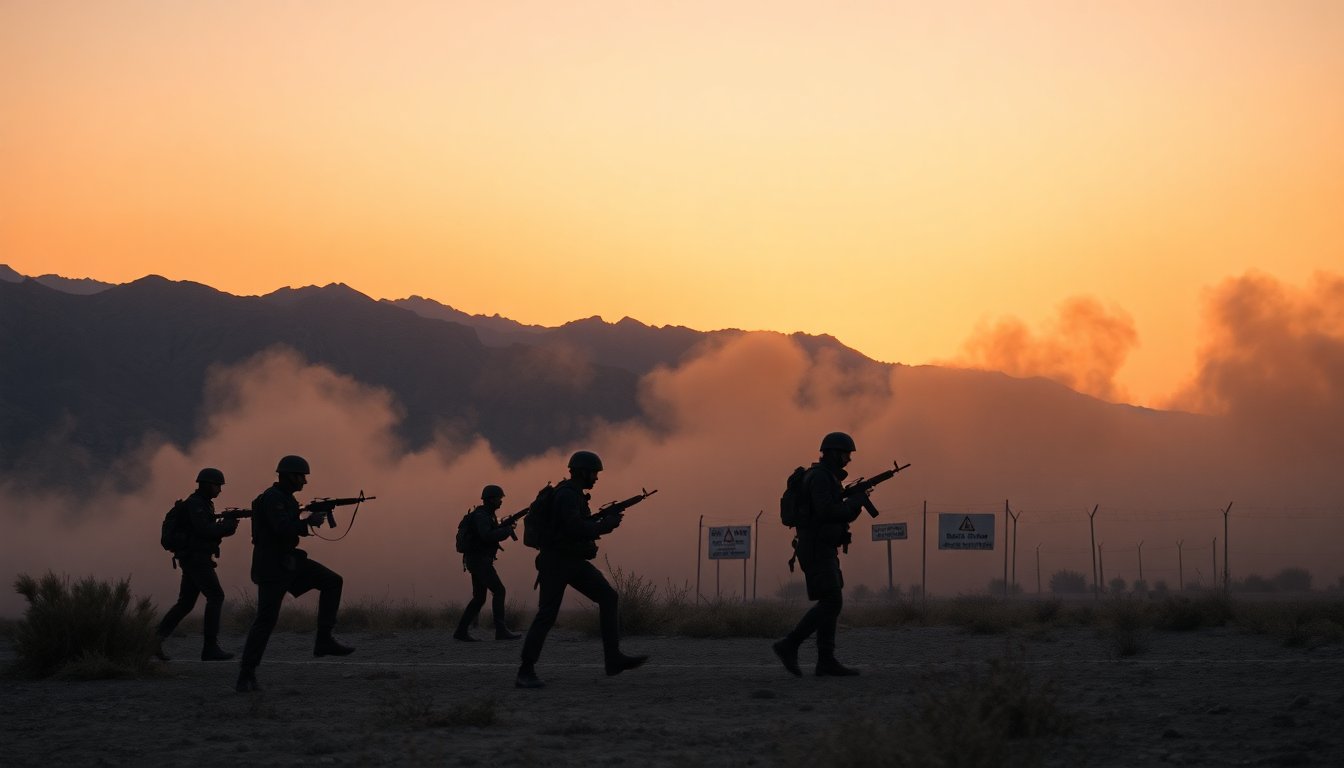Table of Contents
Tensions have escalated near the Afghanistan-Pakistan border, leading to armed exchanges between Taliban and Pakistani forces. This surge in conflict follows a controversial air strike in Kabul, which the Taliban has attributed to Islamabad. In response to these developments, nations such as Iran, Qatar, and Saudi Arabia are urging both parties to seek a peaceful resolution and avoid further escalation.
Enayatullah Khwarizmi, spokesperson for the Afghan Ministry of Defence, indicated that the Taliban executed a series of retaliatory actions against Pakistani troops, claiming these measures were necessary due to ongoing violations by Pakistan. He noted that military operations concluded at midnight, marking a significant moment in the ongoing conflict.
Details of the clashes
In reaction to what they described as “unprovoked” attacks, Pakistani officials have strongly condemned the actions of the Afghan forces. Interior Minister Mohsin Naqvi asserted that Pakistan’s military would respond decisively to every act of aggression. He emphasized that firing from Afghan forces onto civilian targets constitutes a serious breach of international law, asserting that the Pakistan Army would not tolerate such provocations.
Reports from Radio Pakistan indicate that Afghan assaults occurred across approximately six locations along the border. The Pakistani military’s counteraction was characterized as “strong” and “intense,” featuring artillery and gunfire that illuminated the night sky. However, there has been no confirmation regarding whether the fighting has subsided.
Background of the conflict
This escalation follows a significant air strike in Kabul, which the Taliban blames on Pakistan. Although Islamabad has denied responsibility for these attacks, it has accused the Taliban administration in Afghanistan of providing refuge to the Pakistani Taliban, a group that has been conducting strikes against Pakistan, allegedly with support from India.
The Indian government has denied these allegations, while the Taliban maintains that it does not permit its territory to be used for hostile actions against other nations. This complex web of accusations and counter-accusations deepens the existing tensions between the two countries.
Regional responses to the conflict
The ongoing clashes have raised alarms among neighboring countries, prompting calls for restraint and peaceful dialogue. Iranian Foreign Minister Abbas Araghchi has urged both Pakistan and Afghanistan to exercise caution. In a televised interview, he stated that maintaining stability in the region is vital, positing that both nations must prioritize peaceful interactions.
Qatar has also expressed concerns regarding the rising tensions, emphasizing the potential risks to overall regional security. The Qatari Ministry of Foreign Affairs has encouraged both sides to engage in dialogue, prioritizing diplomatic solutions to mitigate the conflict and foster peace.
Saudi Arabia’s stance
Saudi Arabia has joined the call for calm, stressing the need to avoid further escalation and embrace dialogue. The Saudi Foreign Ministry reaffirmed its commitment to supporting efforts aimed at promoting peace and stability within the region. They highlighted the importance of cooperation among Pakistan and Afghanistan to achieve long-term security and prosperity for their peoples.
As the situation continues to unfold, the international community watches closely, hoping that diplomatic channels will prevail over military confrontations. The call for restraint from influential regional players underscores the critical need for dialogue in resolving these disputes and fostering peaceful coexistence.


